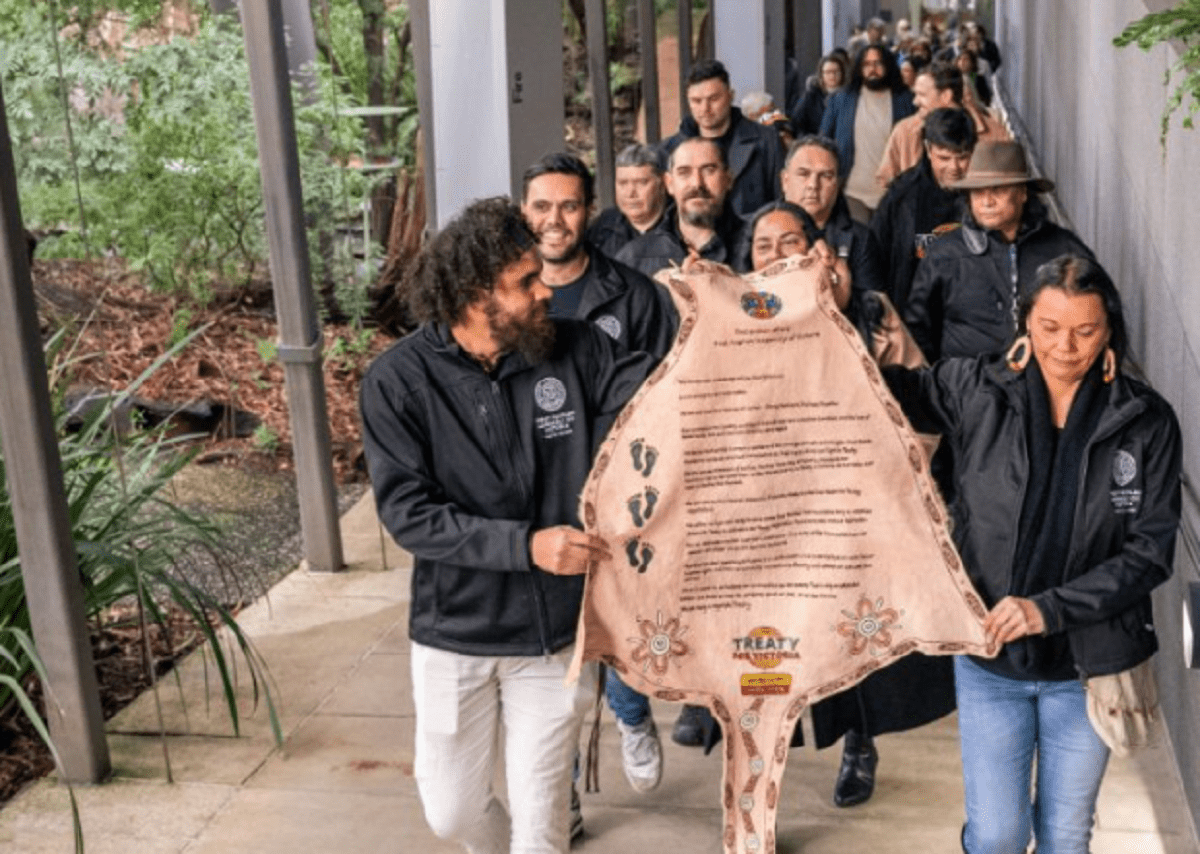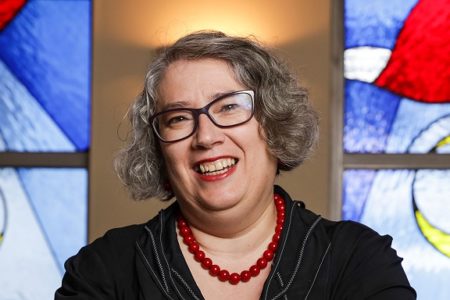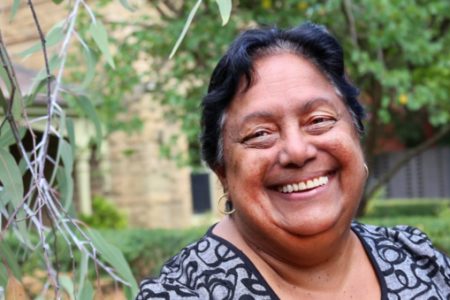By Mark Zirnsak
Australian history is built on colonial conquest.
Some people talk about non-indigenous Australians living on “stolen” land.
For me, that does not cut it.
The British Empire did not travel to the South Pacific to do a spot of shoplifting.
The British Empire was built on brutal military conquest and exploitation of the people and lands conquered.
The historical ripples of that conquest are still felt in Australia today, especially by First Nations peoples who, on average, remain disadvantaged in Australia.
I am quick to point out that none of us alive today took part in that period of conquest.
However, we have the opportunity to work towards correcting the historical injustice.
Treaties with First Nations peoples are a crucial mechanism by which we can build on efforts to correct the historical injustice of the colonial period.
If you are already sold on the need for us to act in support of fixing the historical injustice and grasp how our theology leads to the need for such action, you can skip ahead to the end at this point to find out how to support a treaty process in Victoria.
Correcting an injustice or making reparations for harm that has occurred in the immediate past is much simpler than addressing a historical injustice where those who caused the original injustice and those who were immediately impacted by it are all long dead.
Such efforts to put things right move from individual compensation to seeking a socially just society for everyone.
Our Synod has long understood that is what is needed.
In their submission to the 1984 Victorian Parliamentary inquiry into ‘Compensation to Victorian Aborigines for Dispossession and Dispersal’, the Synod and Victorian Anglican Church recognised that a “compensation” for the injustices and harms of the racist colonial past needed to be material and structural, moving beyond symbolism. The submission stated:
In particular, the main denominational Churches and the Australian Council of Churches’ advocacy of Aboriginal Land Rights since the sixties symbolises a reformation in Churches’ thinking: from silence to advocacy; from paternalism to an opening up of new possibilities for power-sharing; and from protectionism to a recognition of the right of Aboriginal self-determination.
The view of the Synod in 1984 aligned with recent work by US-based scholar of Nigerian background, Olúfémi Táíwó, who has argued, “Reparation, like the broader struggle for social justice, is concerned with building the just world to come”.
His words echo the Christian theology of seeing God reconciling the world to God’s self and our need to seek to be in right relationship with God and other people (2 Corinthians 5:19-20).
Historically Jesus had direct experience of living under a conquering empire.
Much like the later British Empire, the Roman Empire exploited conquered lands for financial gain.
However, from the time of Constantine, Christianity became twisted to serve the interests of empire.
The topic is well explored in the 2003 work by theologian Douglas John Hall, ‘The Cross in Our Context’.
Hall argued for the rejection of imperial theologies, and that instead, the church should be attentive to the suffering in the world around us.
He argued that if the church does not take on correcting the burden of suffering around it, “then its whole life must be called into question”.

The First Peoples’ Assembly of Victoria comprises 32 traditional owners.
In 2016, before the Statement from the Heart was made at Uluru by First Nations representatives, Victoria began a process to commit itself to the reforms needed to see the aspirations of self-determination finally flourish through a formal state-based treaty process with First Peoples.
International experience in places like New Zealand, Canada and the US is that treaties with First Peoples are one of the best ways to address the injustices of the racist colonial past (https://www.atns.net.au/international-treaties).
The US alone has over 300 treaties with Native Americans.
In August 2018, with bipartisan support, the Victorian Parliament enacted the ‘Advancing the Treaty Process with Aboriginal Victorians Act 2018’.
This historic legislation paved the way for forming the First Peoples’ Assembly of Victoria, which comprises 32 traditional owners of Victoria to ensure it represents the state’s diversity.
Each of the formally recognised traditional owner groups is allocated one seat, with the remaining 21 being democratically elected seats split across six regions.
The legislation purposefully does not specify who the treaty will be with or the areas that will be included within it.
The silence on these issues allows for self-determination so the groups that want a treaty can negotiate for themselves.
The approach means there is scope for more than one treaty to be negotiated.
As far back as 1988, the National Assembly meeting of delegates from congregations across all of Australia adopted a resolution that committed the Uniting Church:
To support efforts to work beyond the concept of the compact proposed by the Australian Government towards a form of treaty that is an enforceable agreement obtained through formal and full negotiations between Aboriginal political structures and those of the wider Australian community, an agreement which Aboriginal people can use to protect their interests.
The National Assembly and Synod meetings in 2000 and the 2019 Synod meeting expressed support for treaties with Australia’s First Nations peoples.
Negotiations between the Victorian Government and the Victorian First Peoples’ Assembly will commence soon.
The Victorian treaty process is unique in Australia, and is currently leading the nation as proof that a pathway toward addressing the unfinished business of tackling the colonial past is possible.
It will not require a referendum to ratify any final treaties that are negotiated.
The Victorian First Peoples’ Assembly is calling on Victorian organisations to sign a statement expressing their support for the treaty process.
If you want a copy of the statement to consider for your faith community, congregation or presbytery signing on, contact the Synod Justice and International Mission Cluster with an email to jim@victas.uca.org.au
I would offer one final suggestion to congregations and faith communities considering supporting the Victorian treaty process.
Please do not make it about guilt.
Scholar Liam Kofi Bright, in his 2023 paper ‘White Psychodrama’, argued that “white” people having arguments over whether they should feel guilty about the racist colonial past does not in itself address the ongoing injustices experienced by the descendants of those who were colonised.
Instead, it acts as a barrier to those who might otherwise support action to correct historical injustices.
Make your discussion about how we work together towards a world where First Peoples can obtain justice for past wrongs.
Mark Zirnsak is Synod Senior Social Justice Advocate



